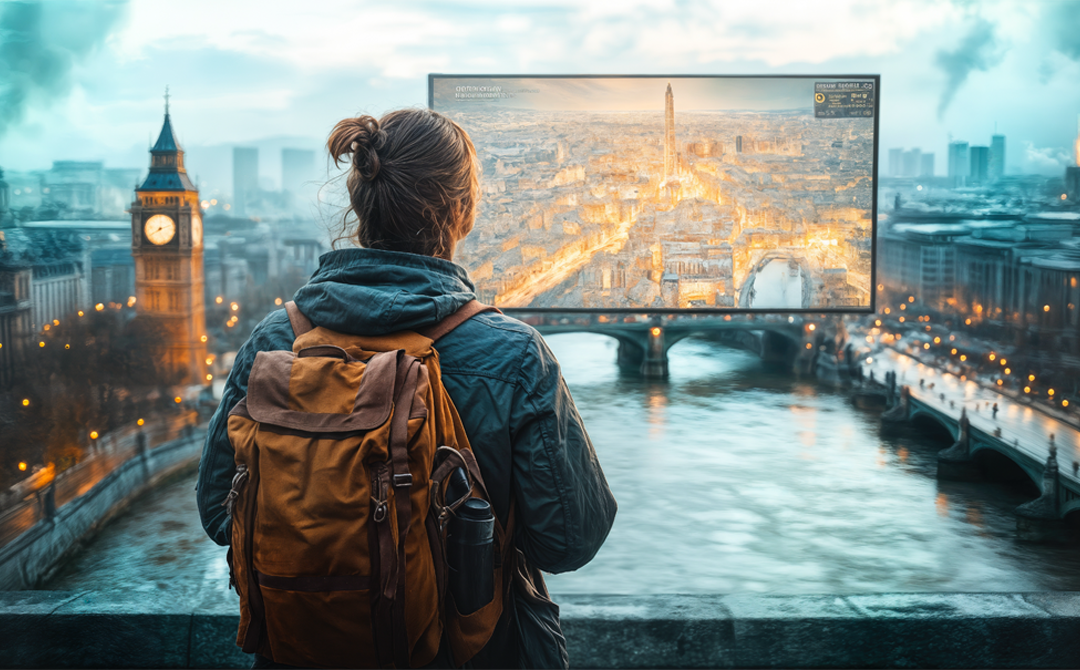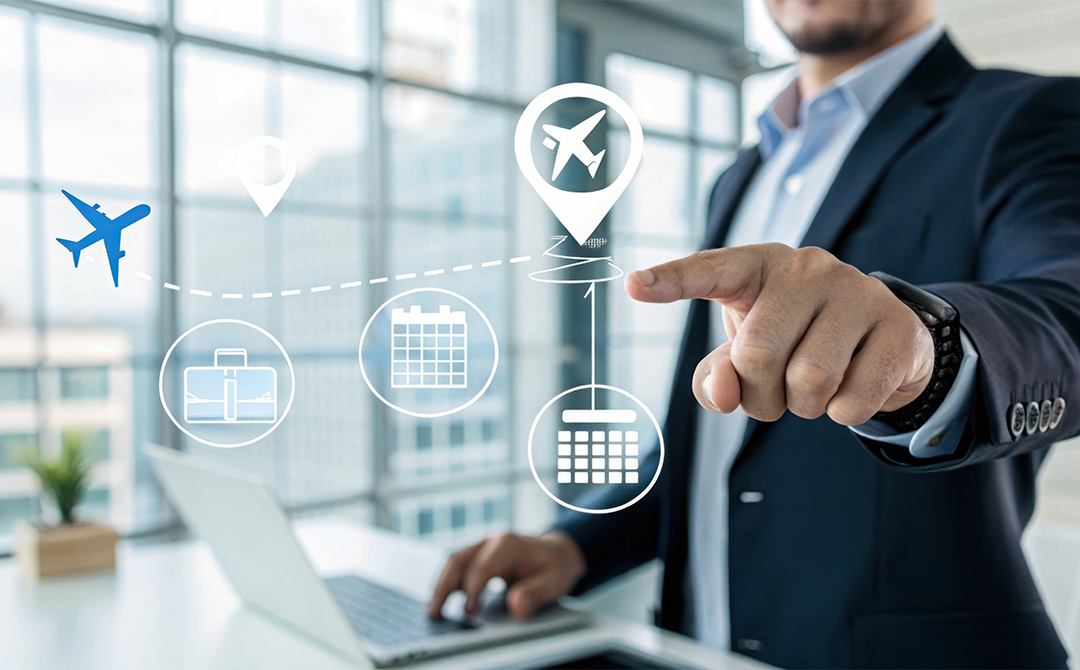
Hotel staff shortages have reached crisis levels, with 87 percent of properties operating understaffed according to the American Hotel and Lodging Association's 2024 report. (Source: ahla.com) Simultaneously, guest expectations continue to rise, creating an operational gap that threatens service quality across the industry. AI agents for hospitality have emerged as a strategic solution, with adoption rates for the best AI agents for hospitality standing at over 80 percent among hotels. (Source: allaboutai.com)
The consequences are industry-wide: understaffed hotels mirror the broader struggle of businesses balancing rising customer expectations with limited human resources. Hotels implementing AI concierge systems report 30 percent reductions in routine inquiries to front desk staff, allowing team members to focus on complex guest needs and meaningful interactions. (Source: callin.io) For hospitality leaders, this shift creates both competitive opportunities and adaptation challenges.
Rising service expectations collide with staffing realities at a time when personalization has become non-negotiable. Guests now compare hotel digital experiences not just with other accommodations but with seamless interactions from tech giants and retail leaders. Properties without intelligent systems increasingly struggle with response times, consistency, and staff burnout.
This article unveils the essential capabilities of hospitality AI agents, critical selection criteria for implementation success, and practical applications reshaping guest experiences across the industry.
What to Look for in the Right AI Agent for Hospitality
Selecting the optimal AI agent for your hospitality operation requires careful evaluation across multiple dimensions. The right solution must enhance guest experiences without adding complexity or sacrificing the human touch that remains essential to hospitality excellence.
Integration Capabilities
AI agents must seamlessly connect with your existing technology ecosystem. Look for platforms that offer pre-built integrations with:
- Property Management Systems (PMS): AI agents should synchronize with your PMS to access real-time room inventory, guest profiles, and booking information. Without this integration, AI systems may provide outdated information or be unable to complete bookings, creating frustration rather than convenience.
- Customer Relationship Management (CRM) Systems: Deep integration with your CRM enables AI agents to reference guest history, preferences, and loyalty information. This connection allows for personalized service recommendations based on previous stays and stated preferences.
- Communication Channels: Multi-channel support across website chat, mobile apps, SMS, WhatsApp, and voice assistants ensures consistent guest experiences. Hospitality properties where guests can start a conversation on one channel and continue it on another report higher satisfaction with digital services.
Tredence's expertise in system integration for hospitality clients demonstrates the power of connected AI. Their recent implementation for a luxury resort chain seamlessly unified guest data across seven disparate systems, creating a single source of truth that powered their AI concierge. This integration enabled personalized recommendations that increased ancillary revenue by double digits while significantly improving guest satisfaction scores.
Learn more about Tredence Hospitality Analytics.
Natural Language Processing Capabilities
The sophistication of the AI agent's language understanding directly impacts guest satisfaction. Evaluate:
- Contextual Understanding: The ability to maintain conversation context across multiple interactions. Effective AI systems can recall previous requests without requiring guests to repeat information, creating more natural interactions.
- Multilingual Support: Properties serving international guests require AI agents with robust language capabilities. According to a Cornell Hospitality Report, hotels serving international clientele indicate that language support for at least the top five languages among their guests is essential for AI implementation success.
- Sentiment Analysis: Advanced AI agents detect guest frustration or satisfaction in real-time, allowing for appropriate response escalation. This capability ensures human staff handles the complex issues before guest frustration escalates.
Customization and Learning Capabilities
Effective AI agents adapt to your specific property's needs and continuously improve. Prioritize:
- Training Flexibility: The ability to train the AI with your specific services, policies, and local knowledge. AI systems should allow hospitality staff to input property-specific information and correct responses that do not align with your service standards.
- Learning Mechanisms: AI systems should improve through both supervised learning (staff feedback) and unsupervised learning (pattern recognition). The most effective systems regularly analyze interaction data to identify improvement opportunities.
- Brand Voice Alignment: Ability to customize responses to match your brand's tone and style. Luxury properties typically require more formal language and detailed responses, while casual brands might prefer a more conversational approach.
Privacy and Security Features
Guest data protection is non-negotiable. Seek solutions with:
- Data Encryption: End-to-end encryption for all guest communications and stored information.
- Compliance Certifications: Verification of GDPR, CCPA, and hospitality-specific data protection standards.
- Selective Data Storage: Configurable retention policies that limit what information is saved and for how long. Hoteliers should be able to define what guest data is retained and for what duration to balance personalization with privacy concerns.
Analytics and Reporting
The insights generated by AI interactions provide invaluable business intelligence. Look for:
- Customer Trend Analysis: Capabilities to identify patterns in guest requests, preferences, and feedback.
- Operational Insights: Reports highlighting bottlenecks or frequently asked questions that might indicate service gaps.
- Performance Metrics: Clear measurement of response times, resolution rates, and guest satisfaction.
Tredence's Customer Analytics solutions exemplify the power of sophisticated AI reporting. Their sentiment analysis capabilities process guest reviews across major platforms to identify specific operational strengths and improvement opportunities. For one international hotel group, Tredence's analysis uncovered previously hidden patterns in guest feedback that led to targeted service improvements and a measurable lift in satisfaction scores. The platform continuously monitors social sentiment to alert properties about emerging issues before they impact reputation.
Scalability and Support
Your AI solution should grow with your business:
- Transaction Volume Handling: Ability to manage peak demand without performance degradation.
- Support Availability: 24/7 technical assistance, especially critical for global hospitality operations.
- Continuous Updates: Regular feature enhancements and security patches.
For instance, during high-occupancy periods like conventions or holidays, AI systems must maintain performance despite significant increases in query volume. The system's ability to scale with demand without degradation is crucial for maintaining service quality when it is needed most.
With these essential selection criteria in mind, hospitality leaders can more effectively evaluate the landscape of available solutions. Understanding the key capabilities of the best AI agents for the hospitality industry is essential before making implementation decisions that will significantly impact both guest experiences and operational efficiency.
Best AI Agents In Hospitality
The hospitality industry has witnessed the emergence of specialized AI agents for hospitality designed specifically for its unique challenges and opportunities. These platforms vary in their strengths, specializations, and deployment models, with the best AI agents for hospitality offering comprehensive solutions for guest engagement and operational excellence.
Customer-Facing AI Agents
These solutions primarily enhance the guest experience through direct interaction:
|
AI Solution |
Focus Area |
Key Features |
Unique Strength |
Potential Application |
|
chatlyn |
Hospitality-specific omnichannel booking |
• Integrated AI booking assistant |
High engagement rates on WhatsApp communications |
Automated pre-arrival communications and local recommendations |
|
Mindsay Hospitality Suite |
Conversational intelligence for the guest journey |
• Pre-trained hospitality responses |
Visual confirmation system reducing miscommunications |
Handling routine requests to free staff for complex guest needs |
|
Whisker AI Concierge |
Local experience recommendations |
• Local attraction database |
Machine learning system improving through guest feedback |
Personalized activity recommendations based on guest profiles |
Operations-Focused AI Agents
These platforms optimize backend processes and staff efficiency:
1. HotelOps AI
Concentrating on operational efficiency and staff augmentation:
- Key Features: Housekeeping optimization, maintenance prediction, and staff scheduling intelligence.
- Unique Strength: Predictive maintenance algorithms that help identify potential equipment issues before they affect guests.
- Potential Application: A hotel with aging infrastructure could implement this system to transition from reactive to preventive maintenance, potentially avoiding guest disruptions and extending equipment lifespans.
Tredence's Predictive Maintenance solutions provide a similar function with enhanced capabilities. Their AI systems monitor equipment performance data to detect subtle patterns that precede failures, allowing maintenance teams to address issues before they impact guest experiences. For a major resort client, Tredence's predictive algorithms reduced HVAC system failures by identifying performance anomalies days before conventional monitoring systems detected problems. This proactive approach significantly reduced guest complaints related to climate control while extending equipment lifespan through timely interventions.
2. RevAI
Revenue management and dynamic pricing optimization:
- Key Features: Competitive price monitoring, demand forecasting, and rate optimization.
- Unique Strength: Market-specific pricing models that adapt to local events and trends.
- Potential Application: A seasonal resort could use this system to optimize pricing during shoulder seasons, potentially increasing occupancy without unnecessary rate reductions.
Tredence's Revenue Management solution offers similar capabilities with additional analytical depth. Their AI algorithms analyze historical booking patterns, competitive pricing, and market demand signals to recommend optimal pricing strategies. Hospitality clients using Tredence's dynamic pricing tools have achieved revenue gains during traditionally challenging periods by identifying precise price sensitivity thresholds for different guest segments. The platform continuously refines its recommendations based on booking performance, creating a learning system that improves over time. Learn about Tredence Revenue Management solutions.
3. Operational Intelligence Platform (OIP)
Focused on cross-departmental coordination and resource allocation:
-
Key Features: Real-time operational dashboards, staff allocation optimization, and inventory management.
-
Unique Strength: Integrated view of hotel operations that breaks down departmental silos.
-
Potential Application: A large resort with multiple restaurants and amenities could improve interdepartmental communication, ensuring staff have visibility into overall property operations.
Data Analysis and Guest Intelligence Platforms
These solutions transform guest data into actionable insights:
1. GuestDNA
Specializes in comprehensive guest profiling and preference analysis:
- Key Features: Sentiment analysis across review platforms, stay pattern recognition, and personalization recommendations.
- Unique Strength: Synthesize data from disparate sources into unified guest profiles.
- Potential Application: A luxury hotel chain could create more comprehensive guest profiles to enable more personalized service across properties, potentially increasing guest loyalty and repeat visits.
2. HospitalityIQ
Focuses on benchmarking and competitive intelligence:
- Key Features: Market positioning analysis, competitor monitoring, and performance benchmarking.
- Unique Strength: Real-time competitor pricing and promotional activity tracking.
- Potential Application: An urban hotel could monitor competitive pricing and package offerings in their immediate vicinity, allowing for more strategic promotional decisions.
Implementation Considerations
When evaluating these platforms, consider:
- Deployment Timeline: Most solutions require 4-12 weeks for full implementation, including training and integration.
- Staff Training Requirements: Factor in training time for staff, depending on the system complexity.
- ROI Calculation: Track key metrics before and after implementation to quantify impact.
In a practical implementation scenario, a hotel would need to establish baseline metrics for guest satisfaction, operational efficiency, and revenue before deploying an AI system. This allows for meaningful measurement of the technology's impact after implementation.
Redefine hospitality with Agentic AI. Discover Milky Way for guest experience innovation.
How AI Agents for Hospitality will Evolve: Future Trends
The hospitality industry is entering an Agentic AI-driven transformation that will reshape guest experiences and operations. Several key evolutionary paths are emerging:
Predictive Experience Personalization
AI agents will advance from reactive to anticipatory service:
- Behavioral Prediction: Algorithms will analyze patterns to predict needs before guests express them, such as offering room service menus at a guest's preferred dining times.
- Preference Evolution Tracking: Systems will identify changing preferences over time, updating profiles automatically when guests shift from high-floor to ground-floor preferences.
- Context-Aware Recommendations: AI will incorporate external factors like weather and local events, suggesting indoor activities during rain instead of previously recommended outdoor excursions.
Hotels implementing these capabilities will deliver tailored experiences for different segments— business travelers receiving early check-in offers for morning arrivals, while families receive age-appropriate activity suggestions.
Advanced Cognitive Capabilities
Hospitality AI will develop a more sophisticated understanding:
- Emotional Intelligence: AI will recognize and respond to guests' emotional states, adjusting communication based on detected frustration or excitement.
- Nuanced Language Understanding: Systems will comprehend cultural contexts and implicit requests, especially valuable for international properties.
- Creative Problem-Solving: Rather than rigid protocols, AI will develop innovative solutions when standard offerings do not address unique guest needs.
Seamless Omnichannel Presence
Physical and digital touchpoints will merge seamlessly:
- Digital-Physical Transitions: Conversations will flow between mobile apps, in-room voice assistants, and other channels without losing context.
- Ambient Intelligence: AI will be embedded throughout properties, adjusting room environments based on preferences without explicit commands.
- Unified Guest Identity: All interactions will contribute to a comprehensive profile, whether guests book through OTAs, call directly, or use property apps.
Tredence leads this transformation with personalized recommendation engines that analyze cross-touchpoint data to create accurate preference models. Their platform helps boutique hotels deliver contextually relevant offers at optimal moments, increasing guest spending while continuously refining recommendations through machine learning.
Collaborative Intelligence Networks
AI systems will function as interconnected ecosystems:
- Cross-Property Intelligence: AI will learn collectively across multiple properties while maintaining privacy boundaries.
- Vendor Ecosystem Integration: Systems will coordinate with local service providers and attractions for comprehensive service beyond property limits.
- Competitive Collaboration: Even competitors may share anonymized insights for mutual benefit in security and fraud prevention.
Tredence's Fraud Analytics exemplifies this approach with AI-powered systems that identify suspicious patterns across properties and channels. For one global client, they prevented significant losses by detecting a coordinated card fraud operation targeting multiple properties, continuously improving detection while minimizing false positives.
Ethical and Responsive Design
Ethical considerations will guide development:
- Transparent Operation: AI will identify itself and explain its reasoning processes to build guest trust.
- Privacy-Centered Design: Systems will minimize data collection while maximizing service quality.
- Augmentation Over Automation: The focus will shift to enhancing staff capabilities rather than replacement, with AI handling routine tasks while providing insights for human-delivered service.
As these ethical frameworks evolve, hospitality businesses must partner with technology providers who balance innovation with responsibility. Finding AI agents for hospitality that align with both operational goals and ethical standards requires expertise from providers with deep industry knowledge and technical capabilities, qualities that distinguish industry leaders in the AI hospitality space.
The Tredence Advantage in Hospitality’s AI Evolution
AI agents are transforming the travel and hospitality industry from standardized service to intelligent, personalized experiences that amplify rather than replace human connections. For hospitality leaders seeking the best AI agents for hospitality industry solutions, the question isn't whether to implement these technologies, but how to deploy them strategically.
Tredence stands at the forefront of this transformation with proven results in its AI consulting services. For a global hotel giant, they implemented advanced AI/ML frameworks that personalized loyalty member benefits using a Customer 360 approach, significantly improving demand forecasting accuracy. Another hospitality leader saw a 2.3x increase in email engagement after implementing Tredence's AWS-powered solution with propensity models and prediction algorithms.
What distinguishes Tredence is its hospitality-specific approach. Its Hospitality solution unifies data across customer touchpoints, reservations, and marketing systems with a pre-built AI/ML suite designed specifically for hotel operations. This integrated intelligence layer enhances the entire guest journey while delivering measurable improvements in satisfaction and revenue.
For hospitality businesses ready to harness AI's transformative potential, Tredence offers a proven partnership model that accelerates implementation while minimizing disruption. Contact Tredence today to explore how their specialized hospitality AI solutions can transform your guest experience.
FAQs
How do AI agents differ from basic hotel chatbots?
The best AI agents for hospitality understand natural language, learn from interactions, and maintain conversation context, unlike basic chatbots that follow rigid, rule-based scripts. AI agents for hospitality integrate with hotel systems, handle complex requests, intelligently escalate issues, improve through machine learning, and understand intent rather than just matching keywords.
Can AI agents handle requests across multiple languages or channels?
Yes, advanced AI agents support multiple languages and communication channels simultaneously. They process conversations in 20+ languages, maintain consistent guest recognition across platforms, preserve context between channels, adapt communication style appropriately, and provide culturally relevant responses for international guests.
How do AI agents help improve reviews, ratings, or guest feedback?
AI agents improve hotel ratings by providing 24/7 service that resolves issues before they become complaints, following up after service recovery, analyzing feedback patterns, tracking sentiment across platforms, and automating personalized post-stay outreach that references specific aspects of each guest's experience.

AUTHOR - FOLLOW
Editorial Team
Tredence




